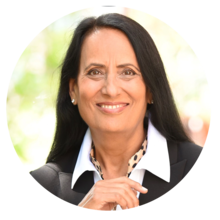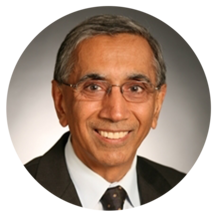About this Presentation
Vilnius district court is the biggest court in Lithuania. There’re more than 100 judges, the same amount of judge assistants and secretaries of the hearing, working in 50 court halls. The court processes +100K civil and criminal cases a year, hundreds of hearings are held every day. Judges struggle with the lack of halls and human resources, complain about growing back-log of cases, face dissatisfaction of people because of relatively long processes and their breaks. District courts, regional courts, the Court of Appeals of Lithuania and the Supreme Court of Lithuania are courts of general jurisdiction, hearing civil and criminal cases. District courts function as 1st instance courts. 5 regional courts function as 1st instance courts for some civil and criminal cases attributed to their jurisdiction by law, as well as courts of appellate instance for the judgments of district courts. The Court of Appeals of Lithuania is the court of appellate instance for the judgments of regional courts as 1st instance courts. The Supreme Court is the court of cassation instance, hearing cassation appeals against the appellate judgments of regional courts and the Court of Appeals of Lithuania. It is also responsible for developing of uniform practice of courts of general jurisdiction in interpretation and application of laws. Audrius Cininas’ presentation addresses processing of cases in the 1st instance courts. They are most overloaded as only 4-5% of rulings are appealed what means major cases start and finish exactly here. Lithuanian laws quite strictly regulate deadlines of intermediate stages of judicial process. Orthodoxical point of view of legislators determine courts are forced to focus on meeting the formal intermediate deadlines rather than on the main goal – produce as many as possible quality rulings. This is the main reason why there’s so little space to implement effective theory of constraints or LEAN methodology tools like buffering and focusing on flow to significantly increase the throughput of cases without compromising the quality. But this is not about excuses. Meanwhile there are a few things left even in the lowest unit (judge, assistant, secretary) level that can be changed by any judge in any country to significantly improve the performance of a judge. Audrius Cininas shares his own experience on how to better exploit judges, a judicial system’s bottleneck time on hearing for hearing and paperwork for paperwork basis dealing with bad multitasking. He also shows what a significant improvements in personal performance can be achieved by effectively controlling a number of work in progress cases by means of drum-buffer-rope, a method you should find in every successful production line. Well, if a judge feels kind of a constrained-machine in a court factory, shouldn’t we check how real plants deal with constrained resources?
What Will You Learn
To help you get the most value from this session, we’ve highlighted a few key points. These takeaways capture the main ideas and practical insights from the presentation, making it easier for you to review, reflect, and apply what you’ve learned.

Instructor(s)
Audrius Cininas

Ms Alka Wadhwa
Alka Wadhwa is an experienced consultant and process improvement expert with over 24 years of expertise in the Theory of Constraints (TOC), Lean Six Sigma, and organizational performance optimization. She has successfully led projects in healthcare, financial services, and manufacturing, driving significant improvements such as a 67% boost in hospital operations and a 140% increase in outpatient visits.
Previously, Alka Wadhwa spent 17+ years at GE Global Research Center, where she led initiatives to enhance various GE businesses through advanced technologies, process redesign, and system optimization. Founder of Better Solutions Consulting, LLC, she specializes in using TOC, Six Sigma, and data analytics to streamline operations and build high-performance teams.
Her work has earned her multiple accolades, including the Empire State Award of Excellence in healthcare.

Dr Gary Wadhwa
Dr. Gary Wadhwa is a Board Certified Oral & Maxillofacial Surgeon with extensive experience in the field. He completed his Oral & Maxillofacial Surgery training at Montefiore Hospital, Albert Einstein College of Medicine in Bronx, NY, and has served as an Attending at prestigious institutions like St. Peters Hospitals, Ellis Hospital, and Beth Israel Hospital in NY. With a career spanning over two decades, he was the former CEO and President of a group specialty practice in NY from 1994 to 2015. Dr. Wadhwa holds an MBA from UT at Knoxville, TN, and has undergone additional training in System Dynamics at MIT, Health System Management at Harvard Business School, and Entrepreneurship and healthcare innovations at Columbia Business School. Committed to expanding access to Oral & Maxillofacial Surgery care, he is currently engaged in a meaningful project to provide healthcare services to underserved populations in inner city and rural areas through non-profit Community Health Centers.
